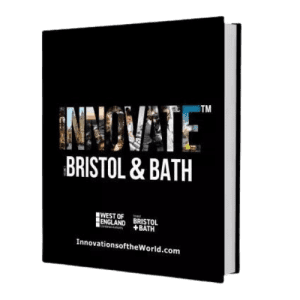“WE ARE CONCERNED FOR ALL THE PEOPLE WHO WILL LOSE JOBS AS A RESULT OF AUTOMATION”.– CHARLES RADCLYFFE, PARTNER
We are worried. Some of the things we worry about are the same as everyone else who is trying to imagine the impact of technology on our lives. We worry about how smart- phones are consuming our attention and mediate our relationships. We worry about how much of our decision-making we ought to delegate to machines. We worry about protecting privacy. We worry about how to prevent people being exploited by industries as their rate of technological development intensifies. We are concerned for all the people who will lose jobs as a result of automation. And like them, we worry about the right directions we need to take going forward. We call this field of worry ‘ethics’.
And yet there is hope. Hope founded not just on the fact that technological innovation has kept many more of us comfortable, healthy and alive then had a pandemic struck a generation earlier; but hope founded on the realisation that the inordinate levels of screen-time we have subjected ourselves, our children and our elders to is unsustainable. More than unsustainable in fact, undesirable. We have above all through the lockdowns been craving human touch. Wherever we are in the world, whatever our beliefs, education, professional lives, tone of skin – there is one thing that unites us more in 2021 than perhaps has ever previously been so widely recognised, that our humanity depends on social interaction; and technological solutions are not a substitute for these things on which we all depend.
While the pandemic has rendered the location strategy for many startups such as mine irrelevant, and despite the geographical spread of my team (California to Poland, via Bristol) I see EthicsGrade spiritually rooted deeply in the Bristol and Bath ecosystem. I grew up in the Westcountry and for a long time after returning to the region in 2014 struggled to reconcile my career in London’s financial district with my desire for a better balance with community. Despite EthicsGrade being every bit as ambitious a FinTech as those I’ve worked with in the past in London and New York, being centred in this ecosystem is a daily reminder that the key to our success in rating companies’ governance as relates to technologies such as Artificial Intelligence (AI) or robotics is paying close regard to the signals from the community around us.
What I have experienced from many years now of working with fine organisations such as the University of Bristol is that the overwhelming spirit of this region is one where the whole is seen as greater than the sum of its parts. Not once have I seen the aggressive dominating mindset that is sadly far too common in other start-up ecosytems such as Berlin, Amsterdam, London or San Francisco. Entrepreneurs from this region care much more deeply about their relationship with the ecosystem and how they and their enterprise play a role in contributing back to the technology community locally.
My advice to my fellow entrepreneurs in this region is not to lose sight of this precious quality. We surely have learned through the pandemic that resilience comes from community and not from individual power. Our job as entrepreneurs is to create diverse and inclusive teams who want to make the world a better place for all, and are willing to listen carefully to those who disagree with how they are setting about achieving this. Our job is also to integrate with the ecosystem – not to see it as something to ‘take from’ or ‘give back’ to, but see it as something that we are bound into, united with, our fates intertwined.
And on this theme I call to more established firms in the West of England who worry for the future as we do. The post-pandemic economic recovery is a huge opportunity to build relationships with your stakeholders that are authentic, and those of you who do so more effectively will endure. Technology in this regard can act as a trap. Automated services might well lower costs and increase efficiency, but if this comes at the cost of developing meaningful human interaction it is unlikely to benefit your
organisation in the long term. If your organisation is one that wants to develop and deliver more ethical technology, then please get in touch and my team and I would love to help. And if you’re just interested in how organisations fare against our EthicsGradeTM rating – then visit www. ethicsgrade.io to see the ratings of all the companies we cover.















